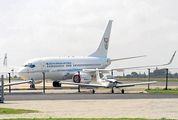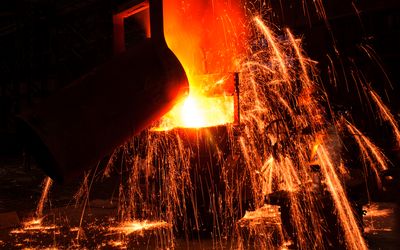A PERFECT storm hit ASA Metals in November and the chrome producer is now in business rescue, trying to save the company for when commodity markets recover.
Since the last day of last month, ASA Metals, a Chinese company that operates the Dilokong Chrome Mine near Steelpoort in Limpopo, has been in a business-rescue process after a damaging unprotected strike, community unrest, lengthy safety stoppages, and the arrest of the CEO of BTG Pactual, a large Brazilian independent investment company.
The setbacks came at a time of an "unprecedented" deterioration in the prices of chromite and ferrochrome over the six months to end-February, said Azwidohwi Munyai, ASA Metals’ company secretary, in a sworn statement marking the entry of the company into business rescue.
"These factors all contributed to an acute cash-flow shortage, resulting in the company becoming financially distressed as defined in the Companies Act," Mr Munyai said.
Metal Bulletin said ASA Metals was the third South African chrome producer to run into severe difficulties in the past seven months.
In January, ASA said it planned to retrench 700 workers at the Dilokong operation, prompting the National Union of Mineworkers (NUM) to call for Mineral Resources Minister Mosebenzi Zwane to intervene.
The business-rescue practitioner would continue the work of putting ASA Metals’ assets into care and maintenance or renting out those assets to generate income and preserve them, Mr Munyai said. The events leading to the distressed financial situation at ASA Metals stacked up to leave the company little choice but to enter business rescue or face liquidation. In November, 253 members of the NUM embarked on an unprotected strike at Dilokong, leading to a R187m loss to ASA Metals, while 12 government-ordered safety stoppages resulted in 50 days of lost production last year, with a revenue loss of R156m.
ASA Metals was in the final stages of talks with BTG, Brazil’s largest private investment bank, when its chairman and CEO Andre Esteves was arrested during an investigation into corruption at state-owned Petrobras, halting all investments by the bank and leading to the end of talks with ASA Metals, Mr Munyai said.
During 2014 and last year, there was "widespread unrest within communities" surrounding the Dilokong mine and smelting operations, with roads blockaded and access to the company’s property affected, he said. ASA Metals spent millions of rand to ensure the safety of employees and to protect property and equipment during those two years.
Mining officials from a number of mines operating in the area spoke late last year of communities fracturing into self-serving groups that were hijacked by individuals seeking to benefit themselves at the expense of the broader community, resulting in unrealistic demands that companies could not meet, with protests becoming increasingly violent.
They warned that the community disruptions, combined with low prices for chrome, ferrochrome, and platinum group metals, could lead to mine closures.
The business-rescue practitioners will have to manage a number of court cases, some of which are for claims of assets in the company. One such is from Ecsponent Investment Holdings for a chromite recovery plant, and others involve the Department of Labour and the National Union of Mineworkers.
The business-rescue process would provide a "temporary moratorium on the rights of claimants" against ASA Metals and give it time to develop a plan so the business could continue "its existence on a solvent basis".
"The development and implementation, if approved, of a plan to realise the company’s assets ... will result in a better return for the company’s creditors and/or shareholders than would be the case in an immediate liquidation of the company," Mr Munyai said.






















Change: 1.19%
Change: 1.36%
Change: 2.19%
Change: 1.49%
Change: -0.77%
Data supplied by Profile Data
Change: -0.07%
Change: 0.69%
Change: 1.19%
Change: 0.00%
Change: 0.44%
Data supplied by Profile Data
Change: -0.06%
Change: -0.28%
Change: 0.37%
Change: 0.37%
Change: 0.47%
Data supplied by Profile Data
Change: -0.62%
Change: -0.31%
Change: 0.38%
Change: 0.17%
Change: 0.00%
Data supplied by Profile Data